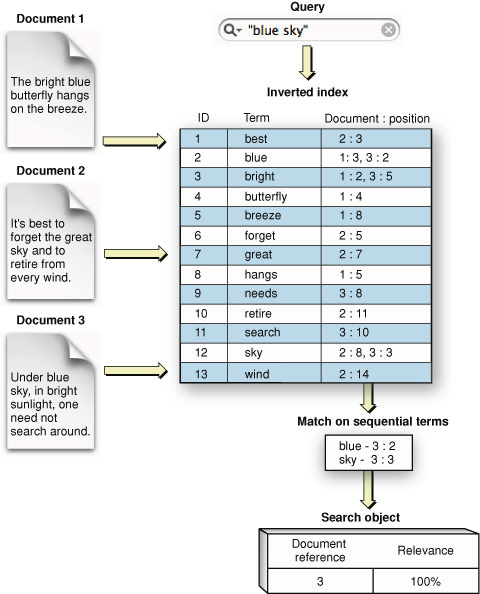Answer the question
In order to leave comments, you need to log in
How to search for phrases in an inverted index?

Using the query "blue sky" as an example, the search index returns all documents for the word blue and for the word sky. Further, we can simply find the same from these documents, and these will be those documents on which there is the phrase blue sky.
But selecting identical documents is a very resource-intensive operation, because you have to go through all of them, and this can be millions of different documents.
Answer the question
In order to leave comments, you need to log in
download
https://www.ozon.ru/context/detail/id/5497130/ there
are answers to all questions initially
scanned on the net
- everything is like you write
an index - this is a list of documents that includes words
two words - two lists of
their intersection - the usual XOR, xs who said that it is resource-intensive
, but for the answer to be RELEVANT - there is a lot of stuff from above, which Ivan Shumov is trying to explain to you,
and yes, in modern search, the index is a list of documents corresponding to the VECTOR of the request,
no one online does it - everything is pre-
computed online just trying to reduce the query to the best (several) pre-computed vectors
Using the query "blue sky" as an example, the search index returns all documents for the word blue and for the word sky. Further, we can simply find the same from these documents, and these will be those documents on which there is the phrase blue sky.no. Will contain both blue and sky at the same time. But not only the given phrase: blue sky.
Didn't find what you were looking for?
Ask your questionAsk a Question
731 491 924 answers to any question